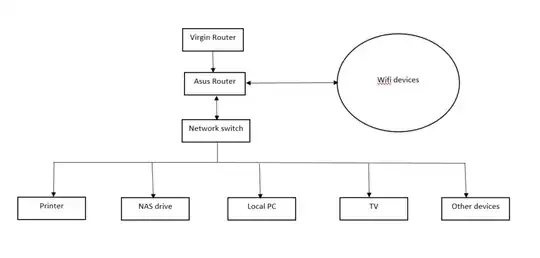I am thinking of changing my current setup at home (which is: I have a Virgin router connected to Asus RT-AC88U. Then all my devices connect to Asus router). I want to add a network rack with a network switch so that I can route all my local connections through this switch. I am not clear on certain things, hence the questions:
- I am presuming that adding a switch will mean that local traffic will just travel through the switch and wont be routed through the Asus router. Is that correct?
- As the devices connected to the network get their IP address (static or non-static) from the router, I am presuming that this will still be the case?
- Would it be better to connect the printer to the switch or connect it directly to the router or leave it the way it is now where it's connected to the network via wifi?
- I have a NAS drive which at the moment is connected to the router. I suspect it's better to connect this to the switch as well? I have a Plex server installed on a local PC. Plex drives are setup on this NAS drive
- NAS drive has a static IP address. Presumably connecting it to the switch will not change the IP address of the drive?
